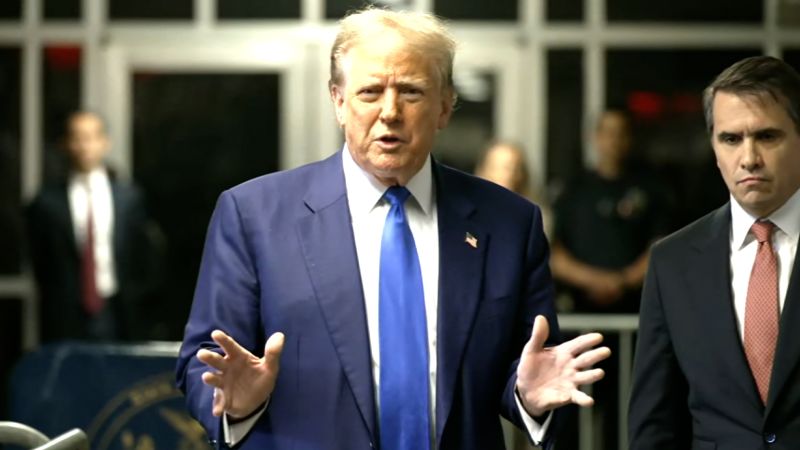During the hush money trial in which former President Donald Trump is a key figure, Judge Juan Merchan corrected Trump’s false statement about a gag order preventing him from testifying. This correction highlights the importance of accurate information and understanding the legal proceedings. CNN’s Elie Honig examines the role and limitations of gag orders in such trials, shedding light on their purpose and scope. Trump’s misunderstanding of the gag order raises questions about his knowledge of the legal system and his willingness to adhere to its rules.
The correction made by Judge Merchan underscores the significance of facts and truth in legal proceedings, particularly when statements made by influential figures like Trump can impact public perception of the case. Trump’s false claim about the gag order limiting his ability to testify reveals a lack of understanding or misrepresentation of the legal constraints in place. Honig’s analysis delves into the specifics of the gag order and its intended purpose, providing clarity on how such orders function in trials involving key witnesses like Trump. The correction serves as a reminder of the need for transparency and accurate information in court proceedings to ensure a fair and just outcome.
Trump’s assertion that the gag order prevented him from testifying raises concerns about his credibility and adherence to legal protocols in the hush money trial. Judge Merchan’s correction of this false statement brings attention to the importance of accurately representing the facts in court. Honig’s commentary on the role of gag orders in such trials offers insights into the restrictions placed on key witnesses and the implications of violating these orders. Trump’s misunderstanding or misrepresentation of the gag order may have repercussions on his credibility and trustworthiness as a witness in the case.
The correction made by Judge Merchan serves as a reminder of the need for accuracy and truthfulness in legal proceedings, especially when influential figures like Trump are involved. Trump’s false statement about the gag order highlights potential misconceptions or misinterpretations that can impact the course of the trial. Honig’s analysis sheds light on the purpose and limitations of gag orders, clarifying their role in maintaining the integrity of the trial process. The correction by Judge Merchan prompts a reevaluation of Trump’s statements and actions in the hush money trial, raising questions about his understanding of legal procedures and commitment to upholding them.
The correction of Trump’s false statement by Judge Merchan in the hush money trial underscores the importance of clarity and accuracy in legal proceedings involving high-profile individuals. Trump’s assertion about the gag order limiting his ability to testify reveals potential misunderstandings or misrepresentations that could have significant implications for the trial. Honig’s examination of gag orders in such cases provides valuable insights into the restrictions imposed on key witnesses and the necessity of complying with these orders. The correction by Judge Merchan prompts a reexamination of Trump’s statements and conduct in the trial, prompting a deeper analysis of his credibility and trustworthiness as a witness.
In conclusion, Judge Merchan’s correction of Trump’s false statement about the gag order in the hush money trial highlights the importance of accuracy and truthfulness in legal proceedings involving influential figures. Trump’s misunderstanding or misrepresentation of the gag order raises concerns about his credibility and adherence to legal protocols. Honig’s analysis of gag orders in such trials offers valuable insights into their purpose and limitations, clarifying their role in maintaining the integrity of the trial process. The correction by Judge Merchan prompts a reevaluation of Trump’s statements and actions in the trial, highlighting the need for transparency and adherence to legal constraints to ensure a fair and just outcome.


